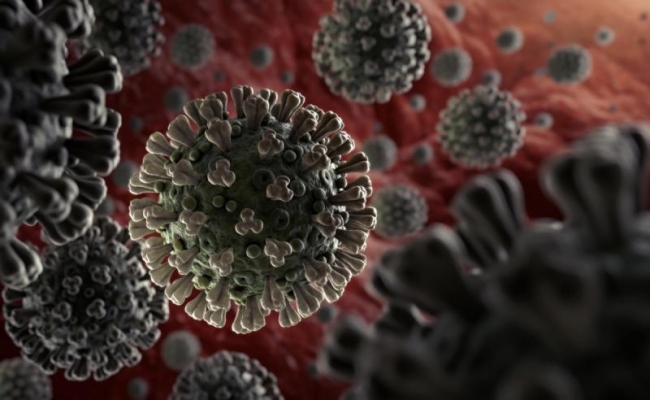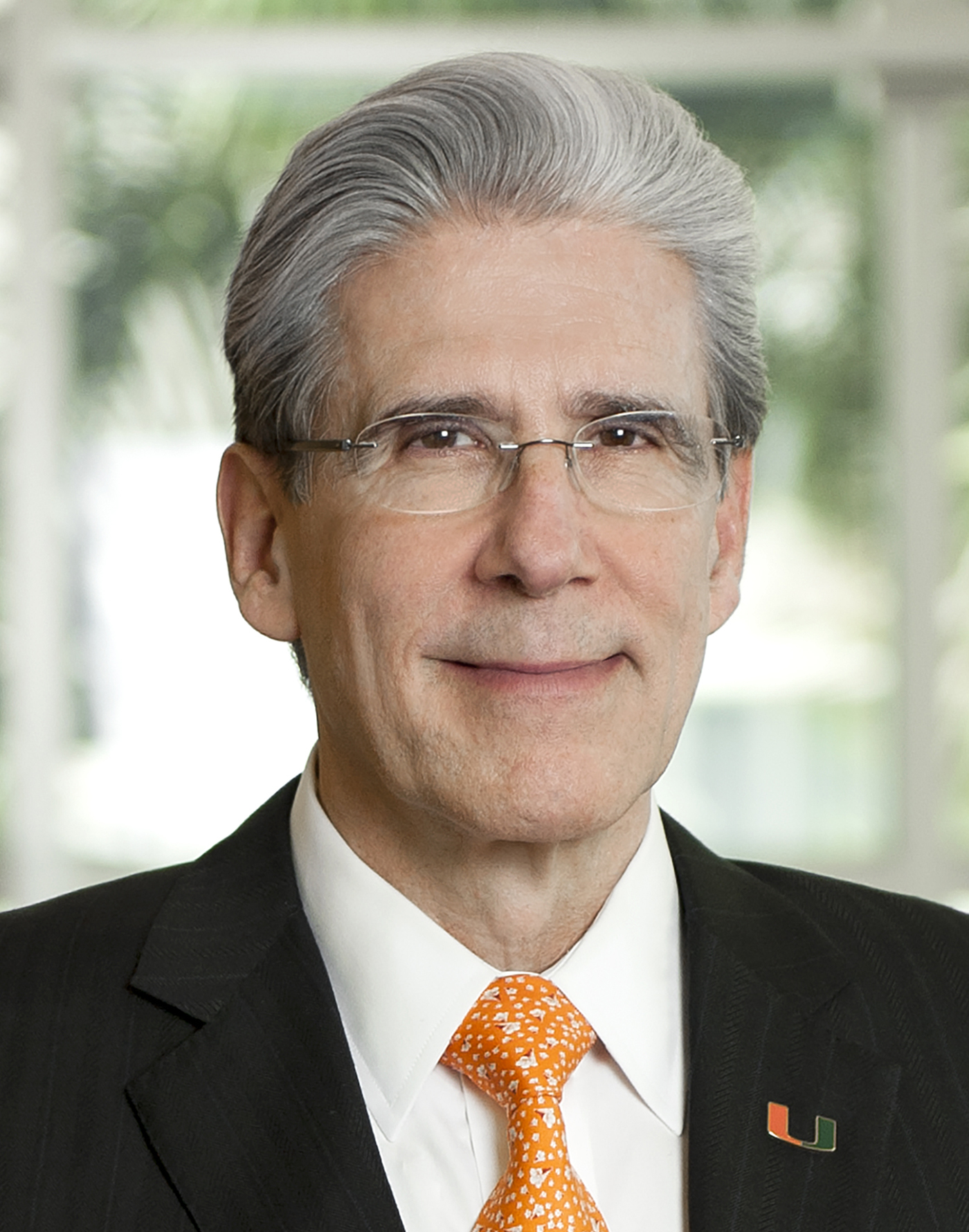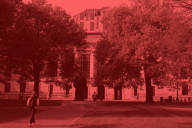You have /5 articles left.
Sign up for a free account or log in.

Istockphoto.com/FPM
Happy Monday.
We have a special feature for you today. On Friday I chatted with Dr. Julio Frenk, president of the University of Miami and a public health expert who served as Mexico's minister of health for six years, about the current pandemic. You'll find our conversation below, in a Q&A format that's been edited for length and clarity.
But first, let's go to our usual roundup of the news.
The House on Friday approved the $2 trillion coronavirus relief bill, sending it on to the president, who said he'd sign it right away. Higher ed and student borrowers get some relief in the package, but advocates are calling for more.
More news from the National Collegiate Athletic Association: all of the NCAA's divisions expect to lose about 70 percent of their annual revenue due to cancellations brought on by the coronavirus. But Division III will be especially hard hit, with a deficit of $7.6 million this fiscal year.
Arizona universities are facing what might be the first class action lawsuit from students due to the coronavirus. The complaint alleges the state's three public universities aren't providing refunds for room and board fees, even after asking students to stay home.
The Association of Research Libraries is asking publishers to "maximize access to digital content" to help educational equity during this time.
Here’s a quick roundup of our latest stories, in case you’ve fallen a bit behind (we don’t blame you):
We got your questions on the coronavirus. Here are the answers, as reported by Paul Fain.
We surveyed college and university presidents about their thoughts on the coronavirus pandemic. The answers, as Doug Lederman reports, are not pretty.
Kery Murakami has the details on a controversial tax relief provision in the coronavirus relief package.
Could virtual thesis defenses become the new normal? Colleen Flaherty asked some experts that question.
News From Elsewhere
The 74 did a deep dive into how the largest community college district in California is making the switch to online.
Did Liberty University reopen its campus to avoid refunding room and board fees? Insider looks at the hard choices institutions are making.
The Chronicle of Higher Education has some lessons from universities that have shuttered before for natural disasters.
Percolating Thoughts
This is a time when everyone has an opinion. As journalists, we try not to have opinions, but we've gathered some interesting ones from others.
An associate professor at Loyola University New Orleans talks about what it's like to teach about the coronavirus in real time.
Policy experts at the Next 100 talk about why we need to take care of homeless students during this time.
Some higher ed experts examined the issues that come with pivoting to online and claiming it will be the same quality as face-to-face instruction.
Have any percolating thoughts or notice any from others? Feel free to send them our way or comment below.
And, as promised, the interview with Julio Frenk.
Q: Is this pandemic different from ones you've dealt with in the past? If so, how?
A: Every pandemic is different. But this one has two attributes that I think make it very different from previous ones. First of all, it is very contagious, much more contagious than influenza. The second characteristic is that it can be transmitted by people who are asymptomatic. This is very different from SARS, another coronavirus, that basically can only be transmitted by people who are very sick.
When you have the characteristics of this coronavirus, and given that there’s been a huge delay in the deployment of tests, the containment strategy comes to a point where it no longer works because you can have community transmission. That’s when you move into mitigation strategies like social distancing and more severe versions of that, like the lockdowns we’ve seen across the world. That response is highly unusual, but it is a consequence of characteristics of the virus.
Q: What is your opinion of how higher ed is handling this crisis?
A: I think we’re doing a pretty good job. We are really fulfilling three roles. The first role is to ensure the safety and health of our community, our students, faculty and staff, while we maintain continuity of the academic enterprise. The subset of universities that also have an academic health system have a second role, which is more outward facing. We become a key part of the response by taking care of our community. The third role is, we are the front lines of developing testing and deploying the tools that are going to allow us to win this war.
With the first role, we’ve responded very well. We have seen a massive shift. I frankly think this is going to be the most massive change in higher ed in such a brief period of time ever.
We were fortunate, when this was declared a pandemic, that our students were on spring break. We extended it one more week, so we had 10 days. We quickly scaled up, and by the time they were back 10 days later, every single course was delivered online very successfully. I have never seen such a shift and change in such a short period of time ever. This is a very common story.
Q: What could higher ed being doing better?
A: What frustrates us often in the public health field is when people say, "Where did this come from?" It’s not a matter of if, but when. What frustrates us is there’s all this attention and resources deployed during an emergency, and when the emergency is over we mostly forget about it.
 Q: Could accreditors, associations and state and department regulators be doing more to provide better support to higher ed during this time?
Q: Could accreditors, associations and state and department regulators be doing more to provide better support to higher ed during this time?
A: I think, obviously during the emergency, it’s important to relax some restrictions. I think it’s an opportunity for the accrediting organizations who may have had to make adaptions to revise their common practices to see which of those adaptions might be made permanent changes.
One issue that we have faced is we’ve asked our students to stay at home. We have students from all over the country. We know there is a growing issue with mental health problems among college students. Those problems will spike. Yet we have our counseling resources, but there are regulatory limitations for mental health professionals to practice telemedicine. We can do telemedicine for a lot of counseling, but some states will not allow interstate telemedicine practice for mental health. That’s something we’ve discovered now that we have students who are experiencing anxiety and, they're our students, but they’re not here in Florida because they were asked to stay home.
And maybe their counselor is here. In this day and age, having state lines constrain technology like telemedicine that doesn’t know physical boundaries just doesn’t make sense. It's driven by the fact that professional licensure is state-based, but there should be some agreement so that interstate telemedicine for mental health issues can be facilitated.
Q: What are you worried about as a university president?
A: Given the attributes of the virus that I mentioned being highly contagious and being transmitted by people who don’t have symptoms, the first worry was to not become a vessel for rapid transmission. So that’s why we had to ask students not to come back.
As we were thinking about closing the residential facilities, we realized there were many students who really had no place to go. We ended up not establishing a total closure of campus, but a partial closing of campus to allow for a limited number of students to stay. Obviously, then our concern has been to keep those students safe.
The other big concern was to bring back all the students who were abroad. That’s when my public health training did come in handy, because as soon as I started hearing the news about China and the beginning of cases outside of China, I told the provost and vice president of student affairs, we’ve got to get everyone back. It was early in the pandemic.
Particularly, we had a group of study abroad students in Italy. It is a very popular destination. Some of those students were not very happy. Well, we insisted that they all come back, and I’m sure they’re very happy that they’re not in Italy now. I didn't know it was going to hit Italy especially hard, I just knew we had to get them back.
Because we have an academic health system, my other big worry has been to make sure that we can respond, that we have enough personal protective equipment for health professionals, that we have supplies and ventilators. Because we are a very highly specialized health system, we’re going to be playing a major role when it comes to critical care for the patients who are very, very ill.
It’s very likely that the responses will trigger a global recession. That has major effects on family incomes. We’re starting to make plans -- what are we going to do for families who used to be able to afford the education of their children but now will not be able to do that? What measures can we introduce now to ensure retention?
Clearly, as we go through a possible global recession, that is going to have a major impact on philanthropy. We know that philanthropy tracks the S&P 500 very closely, so how do we rethink our fundraising strategy?
Q: What are you worried about as a public health expert?
A: I’ve been worried from the beginning about something that we see very often, which is contradictory messaging. There’s uncertainty because it’s a new pathogen, but people want certainty.
Therefore, as important as the measures we’re taking is to have clear communication. I worked previously in my life at WHO for a couple years, and we used to say there are communicable diseases and then there are communicated diseases. A big part of a good response is consistent, credible, constant communication. We have done that here at the university. I told my team, you cannot overcommunicate during this. This is one case where the old saying "no news is good news" just doesn’t apply.
Now take that to the national and global level. One thing that worries me is when political leaders start contradicting what the experts are saying. This happens in almost every country. I’m worried that, around the world, that political leaders may interfere with that, may want to minimize. If you delay, you'll pay for that with much, much more sacrifice needed in the future.
The second thing that worries me is what I was saying before, that once this pandemic is over we just forget about it, and then we’re going to be hit by another pandemic in a few years and we'll have again a repeat. I hope we maintain the investments that are needed to keep the world safe. On the other hand, I am quite optimistic about the power of science to provide solutions to this kind of crisis. I’m optimistic that there will be better diagnostic tools, some treatment for the COVID-19, eventually a vaccine.
I am worried that there is a backlash among politicians and they think that the way to avoid this is to isolate their countries from the rest of the world. That's impossible and I already see a rise in the nationalistic, antiglobalization discourse. I think that would be very dangerous. It's exactly the opposite -- we are interconnected, and that is how the world is and thank God for that. The solutions are going to be found in global cooperation, they’re going to be found in science, they’re going to be found in public investments that benefit everyone around the world, and I think we need to reaffirm that message.
Q: Do you have any advice for higher ed leaders as they navigate this situation?
A: The first thing is listen to the experts. Stay the course. This is going to try our patience. Don’t try to find shortcuts. Sometimes it’s tempting to relax when we think we’re turning the corner, but if we do that prematurely, we may slide backwards. Keep that running list of the lessons you’re learning during the emergency, so that when the emergency is over, you don’t go back to the way it was done before. Actually use some of the adaptive measures you had to take and make them permanent, and therefore introduce some substantial improvements in the way we deliver instruction, we carry on research and we operate our institutions.
Q: If the efforts of isolation and social distancing stop in the next month to help the economy, what do you think the outcome would be?
A: I understand the impulse to try to get things back on track. Clearly, we need to minimize the damage. But we need to understand that if the epidemic gets out of control because of a premature suspension of some of the social distancing measures and isolation measures, the economic cost will be much higher. This will be over, it’s not going to be here indefinitely, we'll get over it.
Q: What roles should university hospitals play in all this? Are they in a better or worse position than other hospitals to deal with coronavirus?
A: Academic health systems play a critical role. First of all, because they tend to be the most specialized parts of the overall health system in the region. Secondly, because they are the ones that are coming out with cutting-edge research around new diagnostics, new therapies and new vaccines. So we play an absolutely essential role.
When it comes to patient care, obviously we are facing the same challenges as every health system, academic or not, which is to make sure that we have enough supplies of critical equipment, particularly personal protective equipment for doctors, nurses and other health workers. We started again, because we could foresee how things were moving, we started getting ready early. But we are in the same boat as everyone else. There's a need to quickly increase the stock and supply of ventilators and personal protective equipment.
Q: Is there anything else you'd like to add?
A: I always speak of universities as exemplar institutions, by which I mean that through the values they embrace and the values they exhibit, they set an example to the larger society of which they are apart. It’s a moment like this when we really need to fulfill that role of setting an example, using the power of knowledge to drive decision making, act in a compassionate way that takes into account the interest of everyone, mobilize the notion that we all have a role to play, and fulfill our critical missions and demonstrate how we can be resourceful and resilient in the face of an emergency.
We’ll continue bringing you the news you need in this crazy time. Keep sending us your questions and story ideas. We’ll get through this together.








